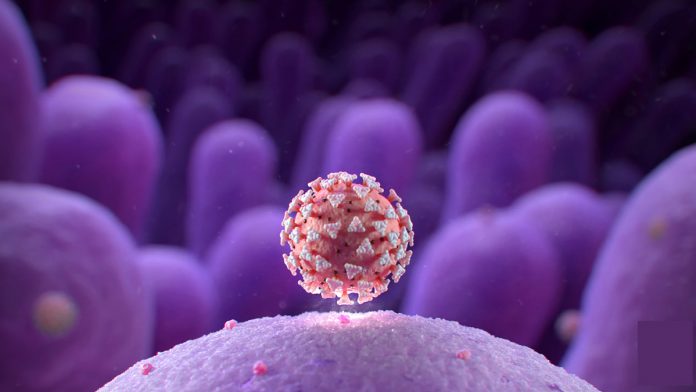KUALA LUMPUR – There is no short cut for COVID-19 vaccines to enter the Malaysian market as they are subject to strict conditions to ensure they are safe, effective and of quality.
Malaysian Pharmacists Society president Amrahi Buang said COVID-19 vaccines that are registered in other countries must be approved by the National Pharmaceutical Regulatory Agency (NPRA) to be brought into the country.
He said the vaccines have to go through a process which was required for other vaccines that had entered the Malaysian market.
“This means that the vaccine will go through the pre-clinical phases I, II, III and after it has been registered in Malaysia, it will enter the next phase.
“When there is a (new) vaccine in Malaysia, it must meet three main conditions, namely it is safe, effective and of quality.
“This is what we want Malaysians to know, so there is no need to worry,” he said in a Bernama TV programme “Koresponden” today.
Meanwhile, Prime Minister Tan Sri Muhyiddin Yassin today launched the National COVID-19 Immunisation Programme Handbook, during which he announced that the POVF-BioNTech COVID-19 vaccine is expected to arrive this Sunday, with the National COVID-19 Immunisation programme to be implemented in stages beginning this Feb 26.
On some quarters having skepticism about the COVID-19 vaccine, Amrahi said the matter had been explained by Minister in the Prime Minister’s Department (Religious Affairs) Senator Datuk Dr Zulkifli Mohamad Al-Bakri.
According to the minister, a special meeting of the Muzakarah Committee of the National Council for Islamic Religious Affairs last Dec 3 had decided that the use of the Covid-19 vaccine is permissible (harus) and obligatory (wajib) for groups which have been identified by the government.
Amrahi said the Pfizer-BioNTech vaccine did not contain ingredients from animal sources.
“Therefore, we can assume that this vaccine is a halal product. Likewise, the Sinovac vaccine developed by a Chinese pharmaceutical company … the vaccine has been used in Indonesia and was declared halal by the Indonesian Ulama Council after conducting a study to ensure that the vaccine does not contain prohibited substances,” he added.
Vaccine candidates await NPRA approval
According to the National COVID-19 Immunisation Programme Handbook, four COVID-19 vaccine candidates are in the process of being approved by the NPRA.
The handbook stated that thus far, only the Pfizer-BioNTech vaccine has received conditional registration from the Malaysia Drug Control Authority (PBKD) and NPRA on Jan 8 this year.
“As at February 2021, Malaysia has had access to a supply of 66.7 million doses of COVID-19 vaccine through the COVAX Facility and early purchases from five COVID-19 vaccine manufacturers,” according to the handbook launched by Prime Minister Tan Sri Muhyiddin Yassin today.
On aspects of effectiveness or how well the vaccine works, it is seen through its ability to protect individuals from the symptoms of COVID-19 disease through vaccination.
The handbook also mentions that the percentage of effectiveness varies according to the way clinical studies are conducted, the type of vaccine, the risk of disease in volunteers and various other factors, and all vaccines approved by NPRA are safe and effective for use in Malaysia.
Currently, Malaysia does not have fully-equipped facilities for vaccine manufacturing, and therefore the country needs to obtain supplies of COVID-19 vaccines from other countries.
The handbook also explained that during the negotiations for the purchase of the COVID-19 vaccines, the government has included value-added elements to enable Malaysia to develop vaccine development capacity in the country.
As Malaysia and the world are at risk of being exposed to other pandemics in the future, the government, through the National Science Council in a meeting in July 2020, agreed that the National Vaccine Development Roadmap be formulated as a long-term plan for the country to produce locally made vaccines in the future.
Similar to other pharmaceutical products, vaccines are a product that is constantly monitored in terms of quality, safety and effectiveness.
“Thus far, the COVID-19 vaccine for Malaysia has been given conditional approval based on compliance with strict standards through the evaluation of scientific, clinical and technical data,” the book said.
Vaccines will be monitored
Each batch of vaccine that will be used in Malaysia is monitored in terms of compliance according to World Health Organization (WHO) standards, and after the vaccine is administered to the community, monitoring of complaints of adverse events following immunisation (AEFI) will be conducted by the Ministry of Health (MOH).
The COVID-19 vaccination is voluntary and will be provided free of charge to all Malaysians (citizens and non-citizens) with an age limit of 18 years and above It will be reviewed from time to time.
The government’s approach is to ensure that at least 80 per cent of the Malaysian adult population receive the vaccine by February 2022 to reduce the transmission of the COVID-19 virus.
There are three vaccination strategies. The first is to give the vaccine to frontline personnel, especially healthcare workers, to ensure that this group is protected from COVID-19 infection, and aims to ensure that the health and safety system is at the optimum level.
“The second strategy is to reduce the burden of disease among high-risk groups so that they will be protected from COVID-19 infection and this can help reduce the burden on the Malaysian public health system,” according to the book.
The third strategy is to control the pandemic with vaccination carried out during phases two and three in high-risk cluster areas through risk assessment to control disease transmission, it said.













